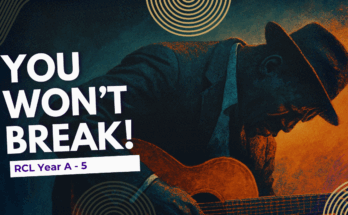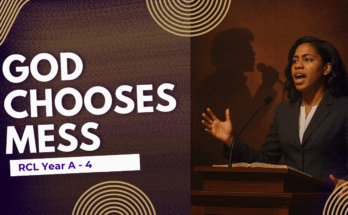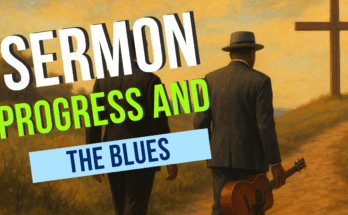As an Amazon Associate I earn from qualifying purchases.
Vincent Wimbush provides a history of African American interaction with the Bible in his book The Bible and African Americans. The Bible has often been held in high esteem by Black Americans and thus it is interesting to look at how this came to be. Wimbush has updated his article that originally appeared in Stony the Road we Trod.
In the Bible and African American’s Wimush uses a metaphor of a circle to discuss the various kinds of “readings” of the Bible text that have existed in America throughout the history of the United States.
First Reading
The first reading is one where African sensibilities cause Africans to look at the Bible with ambivalence. There was interest in the book that was held in such esteem by their oppressors, but there was also distrust of a “Word of God ” that could be held in a “book” in that the Africans who were brought to American in shackles believed that God’s word could not be contained in a book. In addition Africans were from an oral culture in contrast to the European culture.
Second Reading
The second reading incorporates the period of the Negro Spirituals in slavery and emphasizes how Africans took on the Bible as a world to live in that allowed Africans in America to communicate with one another when all of their language and world was removed from them.
When Africans were brought to American attempted to take from them their language and their culture. We know that some of the African culture, language, and religion survived, but at least in public the African ways were suppressed. What Africans in America found in the Bible was a way to speak and communicate with one another. So Africans in America could sing “steal away to Jesus” or “Swing Low sweet chariot” to notify of the coming of the Underground Railroad. They also could express the deepest longing in their hearts for home in “Sometimes I feel like a Motherless Child, a Long Way From Home.”
The Bible was a comfort. The Bible was a place to meet one another. The Bible was a certainty that ultimately God would deliver for “Didn’t my Lord Deliver Daniel.” This reading was largely from the rural southern slave.
Third Reading
The third reading is called by Wimbush “establishing the circle.” Here is the period of activism against slavery where the African American readers used the scripture to find liberation as God’s purpose. This is the reading of the establishment of the churches like Black Baptists and Black Methodists.
The historic African American churches saw in the Bible an ally against slavery. The Bible spoke of God’s liberation of the oppressed from the oppressor. The Bible describes a God on the side of the weak and not the strong. This reading was largely from the northern free African American.
Fourth Reading
The fourth reading is called by Wimbush “reshaping the circle” which is taking the circumstances of urban African American life and using it to interpret the Bible. In this “reading” we see such diverse groups as Father Divine’s, the Nation of Islam, and even the Pentecostal movement.
This reading is a very diverse one. It still interprets the Bible in the light of the experience of Black people, but this experience is very different now. We have urban and rural Black people in America. We have Pentecostals speaking of the Holy Ghost coming down in a powerful way. We have the nation of Islam and Black people of other religions who still feel the need to interact with the Bible. And we have the fringe groups like Father Divine. There is really no unity here, but a fracturing of some of the Unity we have seen in the past.
Fifth Reading
The fifth reading is a Fundamentalist reading called “stepping outside the circle.” In this reading some African Americans buy into the interpretive framework of hermeneutics independent of race. In this it is a distinct break from all the other readings that took African American life as its point of departure and actively sought to read the Bible to see what it has to say to Black people “with their backs against the wall.” The Bible is seen as racially neutral and universal and thus has little to say to the plight of Black people. The modern evangelical movement is taking part somewhat in this reading.
However all evangelicals are not in agreement with this assessment. There are some Black evangelicals who still feel the need to hold on to the 2nd and 3rd readings of the Bible while at that same time trying to stay in the evangelical movement. It is too early to tell what will happen here, but it is my hope that God will retain a remnant in that movement who will hold on to the God that liberates not just from spiritual but also physical bondage.
Sixth Reading
The sixth reading is an addition of the women’s reading and thus “makes the circle true.” Here we add women’s voices to the different readings. A more accurate setup would probably recognize women’s voices all the way through, but in that this was simply a minor edit of the original paper, I think that it was very valuable to at least acknowledge our debt to our sisters.
Conclusion
This book is very valuable in providing a scheme for looking at how the Bible is operating in an African American sermon. More effort and work would have been appreciated in looking at such movements as the Pentecostal movement. I also would like to see more possible work at how some churches are attempting to navigate the call of African American Christianity as well as Evangelical Christianity. In any case, the book is a very valuable, and inexpensive, addition to the African American Preacher’s bookshelf.
Amazon and the Amazon logo are trademarks of Amazon.com, Inc, or its affiliates.




